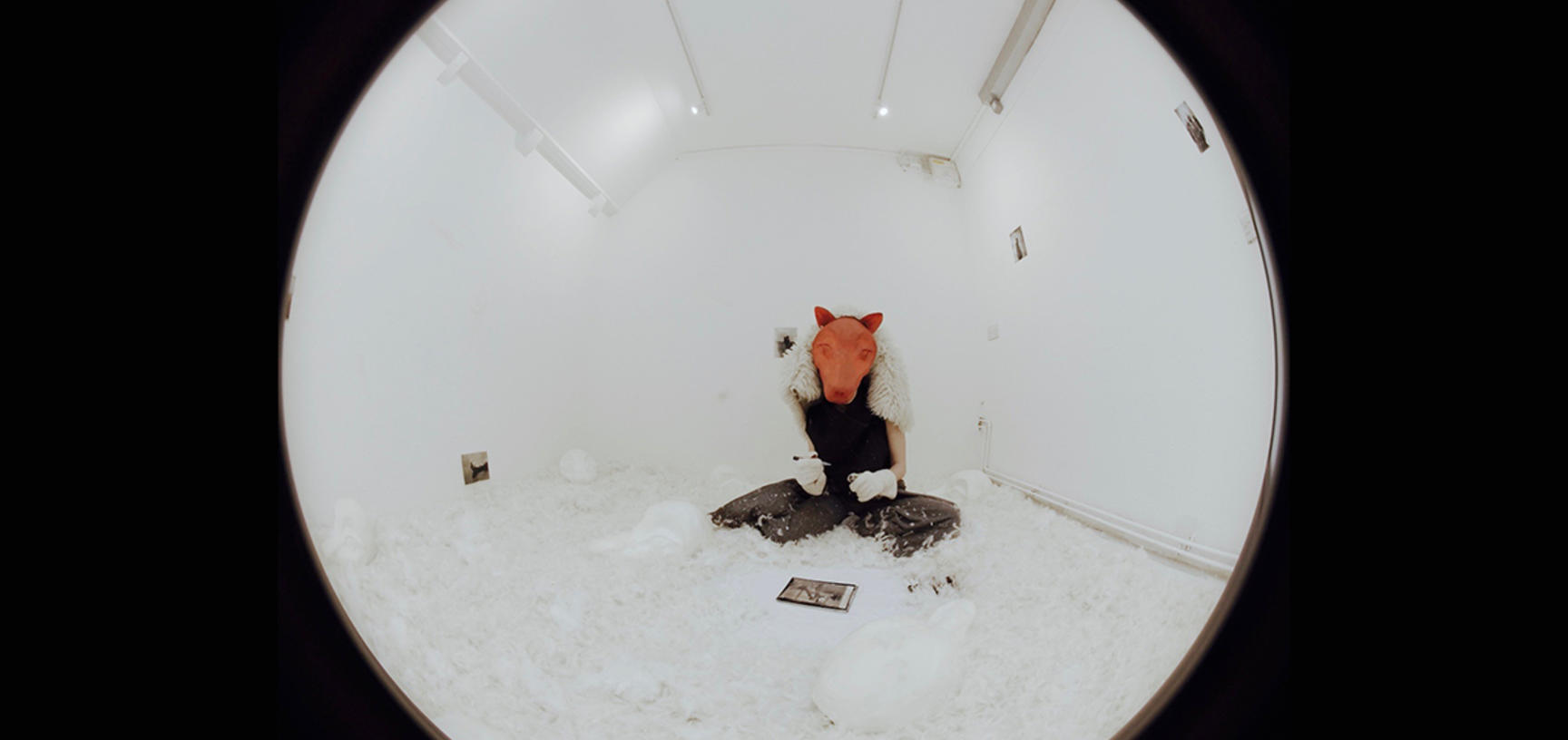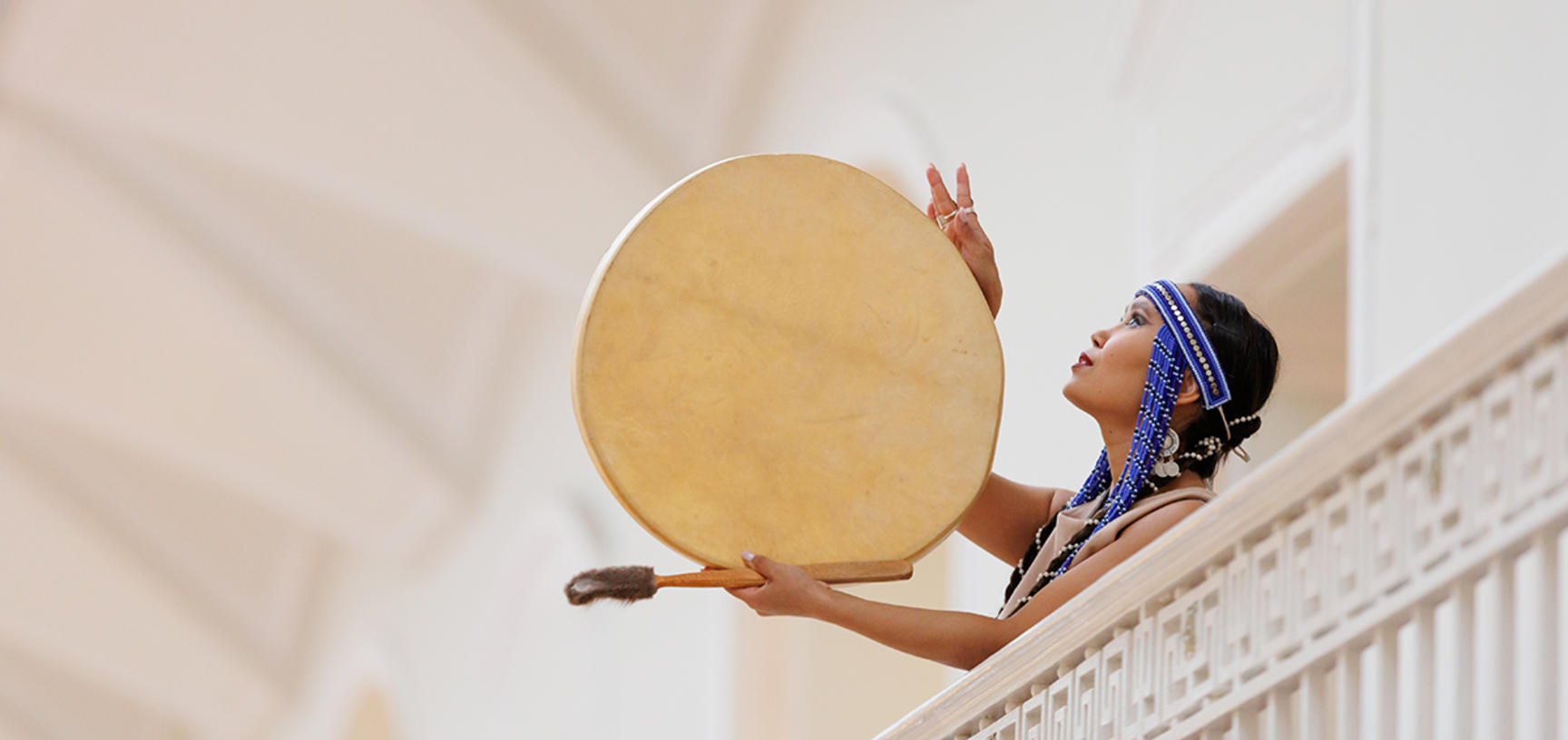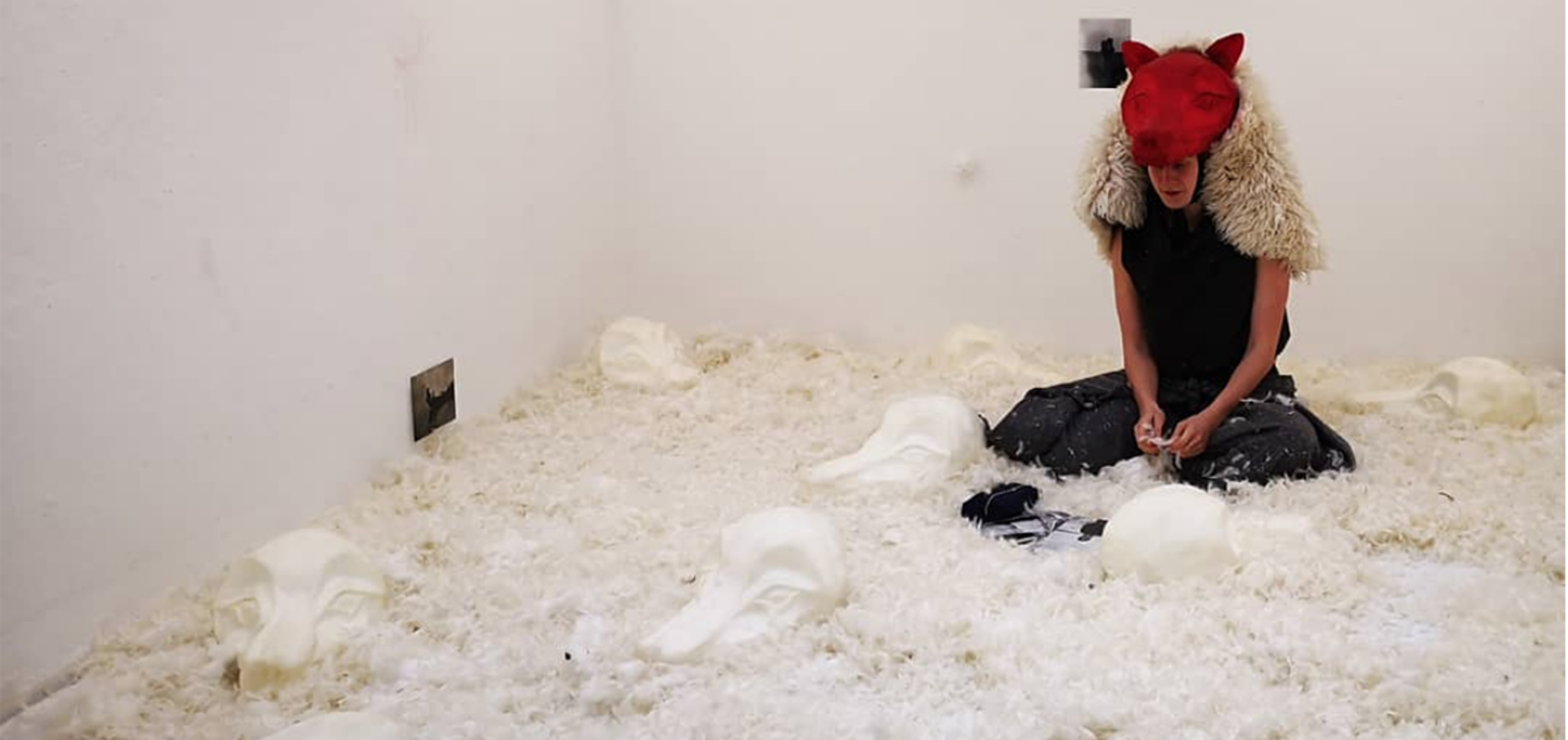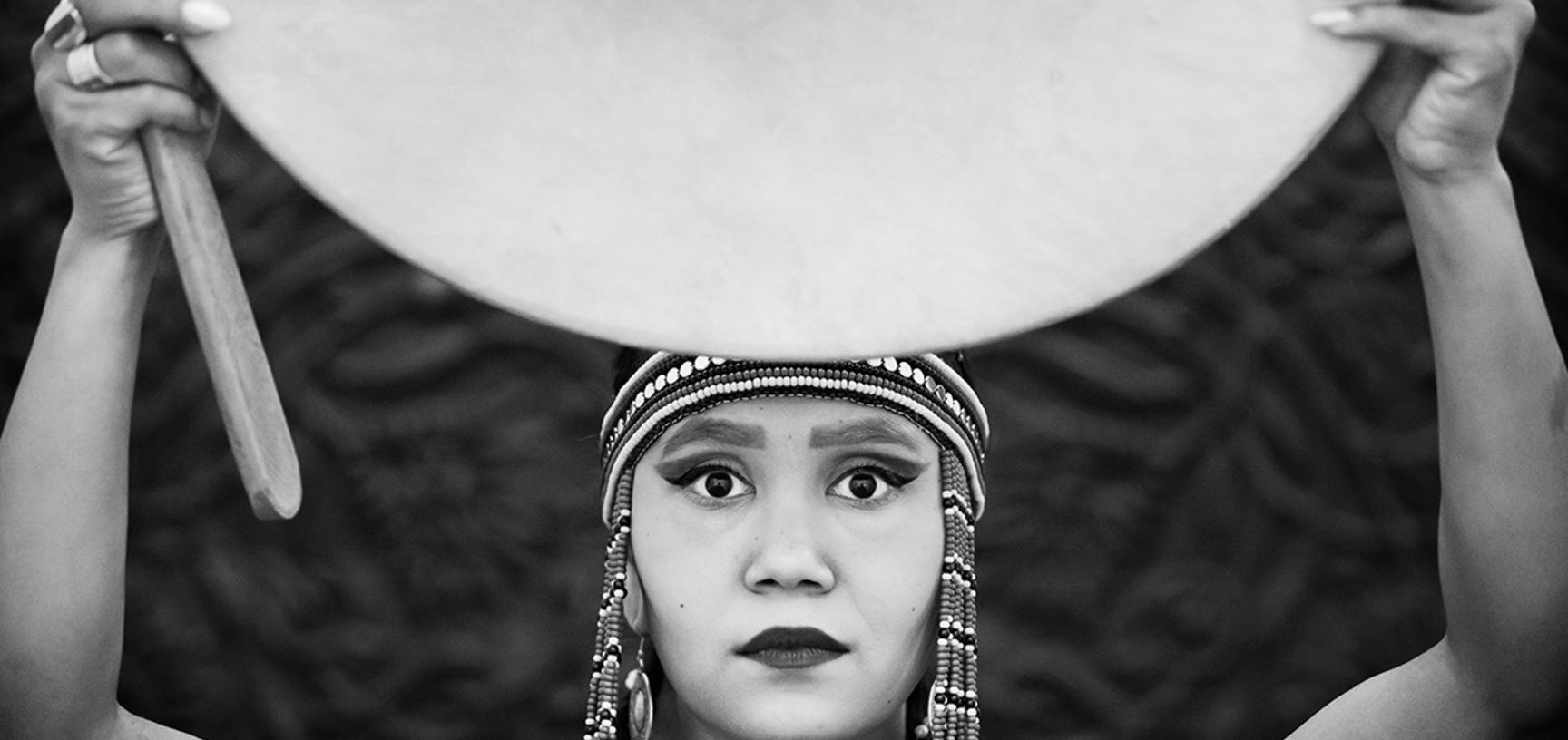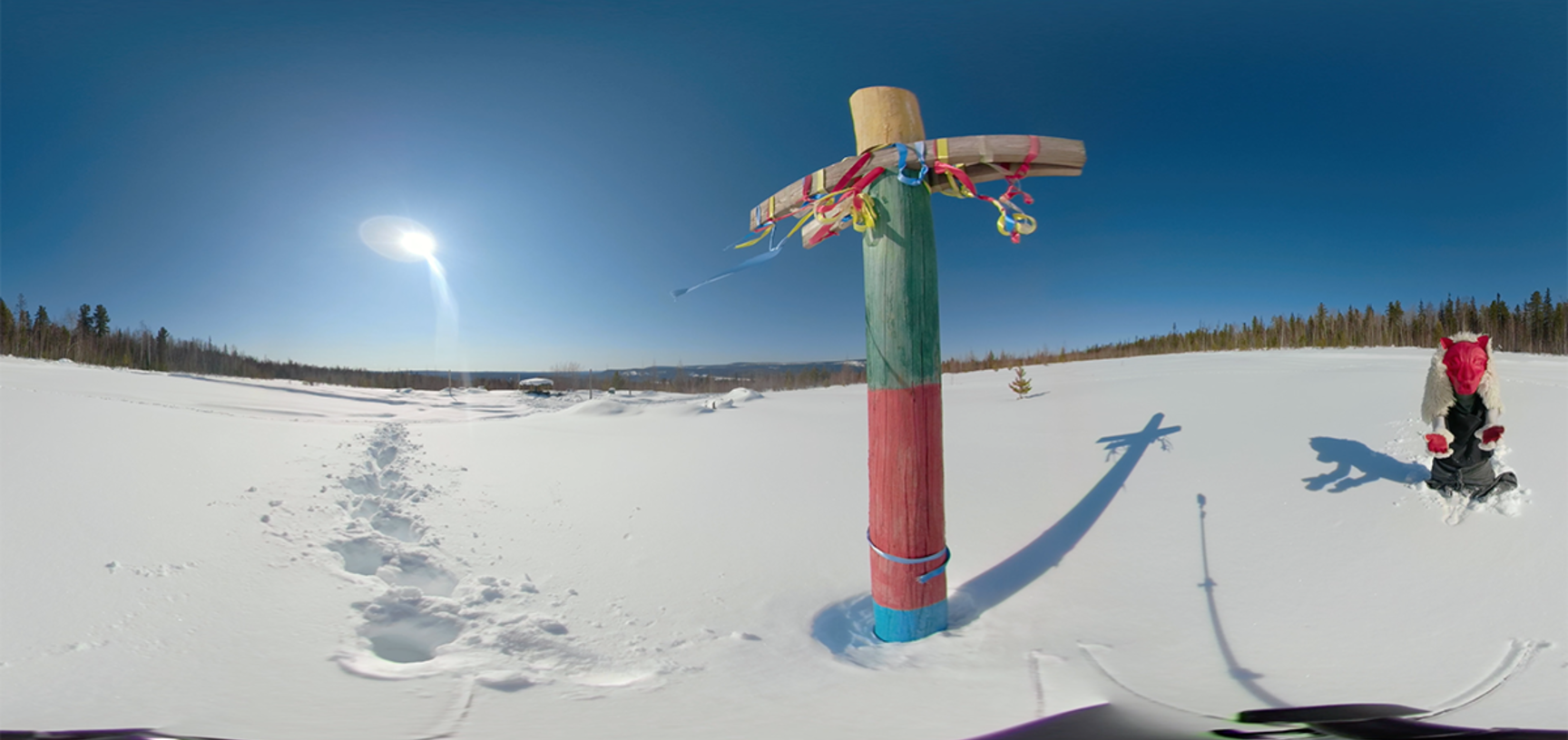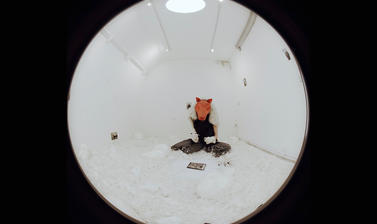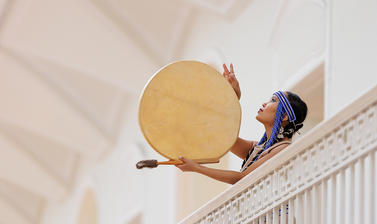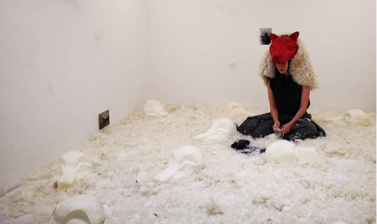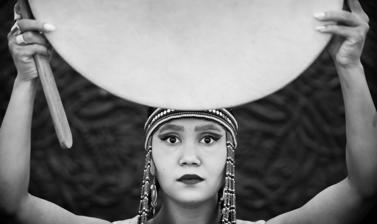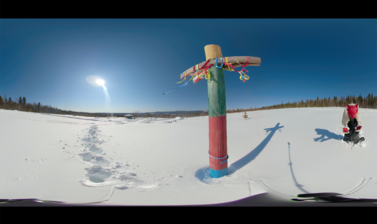Wandering in Other Worlds
Wandering in Other Worlds is a multi-year project with artists Anya Gleizier, Galina Veretnova, and the Pitt Rivers Museum.
This collaboration engages with items held in the museum that were collected from Evenkia by Maria Czaplicka in 1910s. It has involved wider input from the Evenki community, including Galina and culture knowledge holder, Alexander Varlamov, as well as with historical anthropologist Dr Jaanika Vider, to address the context of how these objects were collected and to tell new stories, better representing Evenki perspectives in the museum. Over the years the project has involved research trips by Anya and Jaanika to Evenkia as well as virtual sessions with the museum, including a virtual performance by Galina at a Museum Late Night event in May 2022. Three key activities happened in the autumn of 2022:
A co-curated display
A new display, Wandering in Other Worlds: Evenki Cosmology and Shamanic Traditions was developed as part of the project, co-curated by Galina Veretnova, Alexander Varlamov, and Anya Gleizer, and was installed a case on the ground floor of the museum.
Two short films are included in a plinth in front of the display case. One of these shows 360 degree footage recorded by Anya Gleizer, documenting how immersive video and VR headsets have been used to digitally facilitate connections with the museum collections in Evenkia, and the bringing of Evenki perspectives into the museum. Some stills of the 360 video feature below. A 360 film VR experience has also been created by Anya Gleizer, which has featured as part of the display and at museum events.
An artist residency
During October 2022 Galina Veretnova travelled to the UK and completed an artist residency at the Pitt Rivers Museum.
As a master of traditional song, contemporary artist, and Evenki cultural knowledge holder, Galina performed with Anya Gleizer at the Museum Late Night: Wandering in Other Worlds on Thursday 20 October.
A reconciliation ceremony
During the artist residency, museum staff were honoured to take part in and witness a ceremony to reconcile and heal the relationship between the museum as a holder of Evenki material culture and the Evenki people. Choreographed by Anya Gleizer working with Galina Veretnova, the ceremony was basked on the Evenki Bear Hunt rites and was the first time non-Evenki people have been asked to take part in a reconciliation ceremony. For the ceremony, Anya Gleizer created wolf and bear outfits for herself and Galina, and crow outfits that were worn by museum staff.
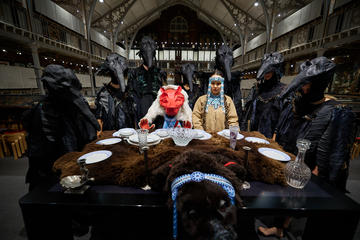
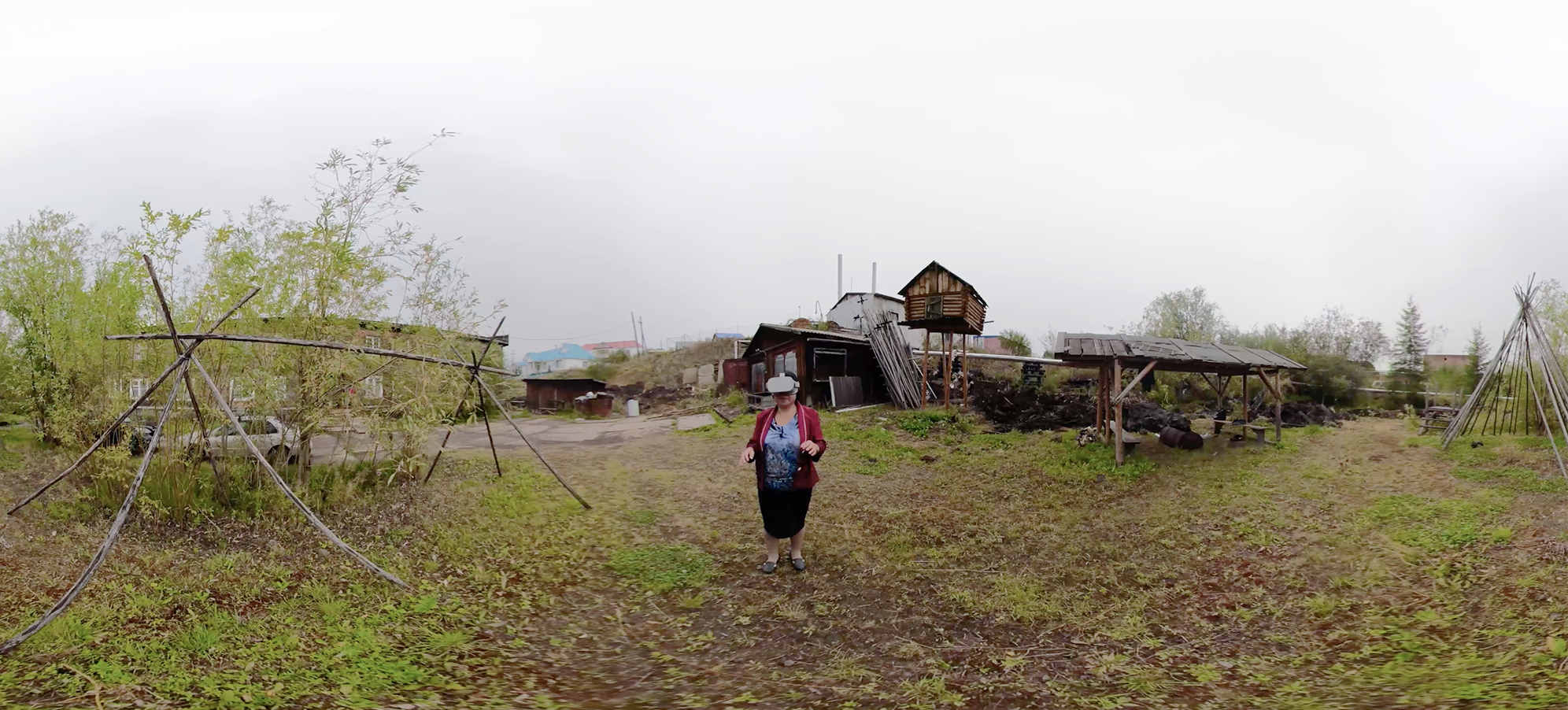
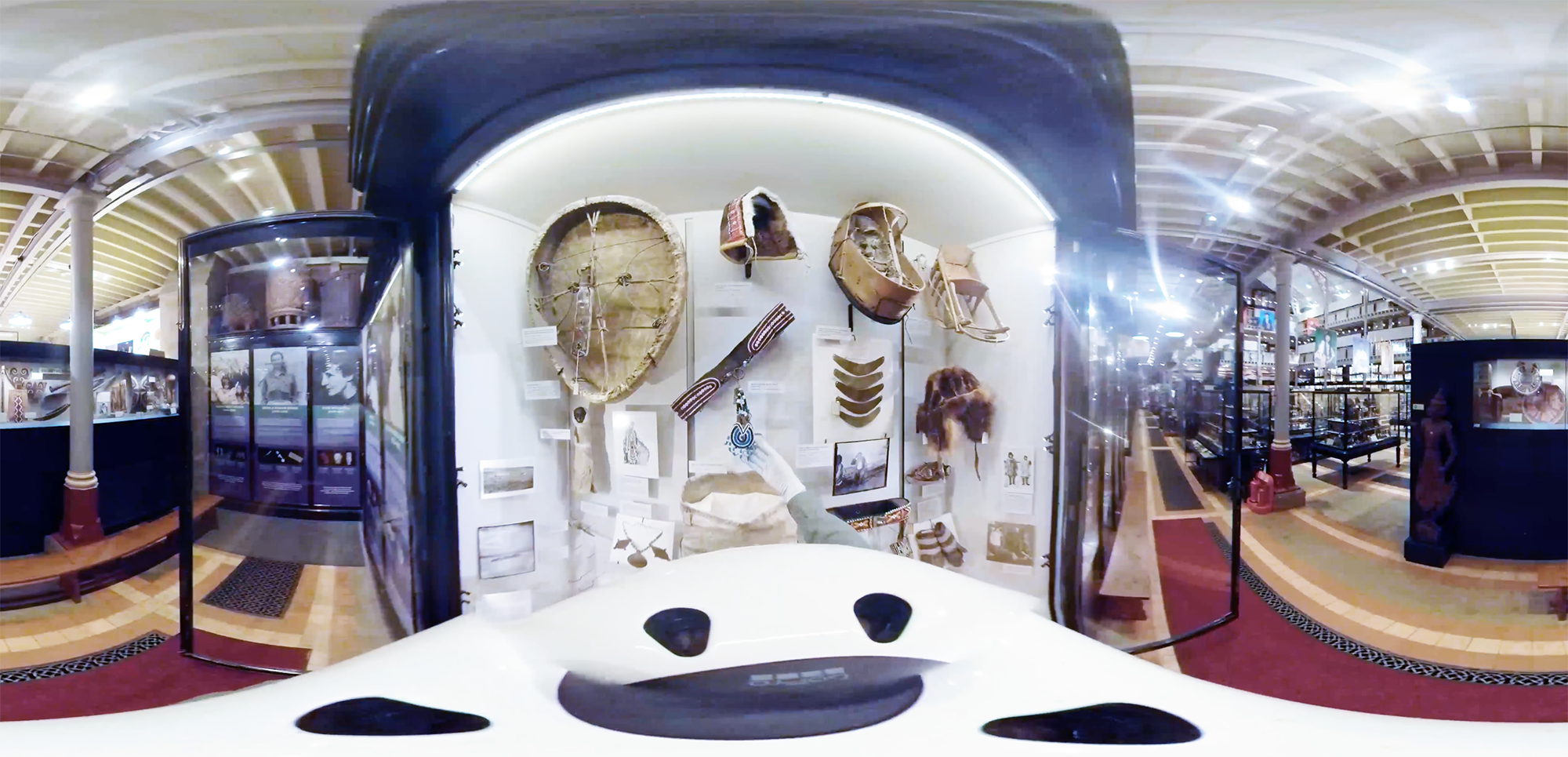
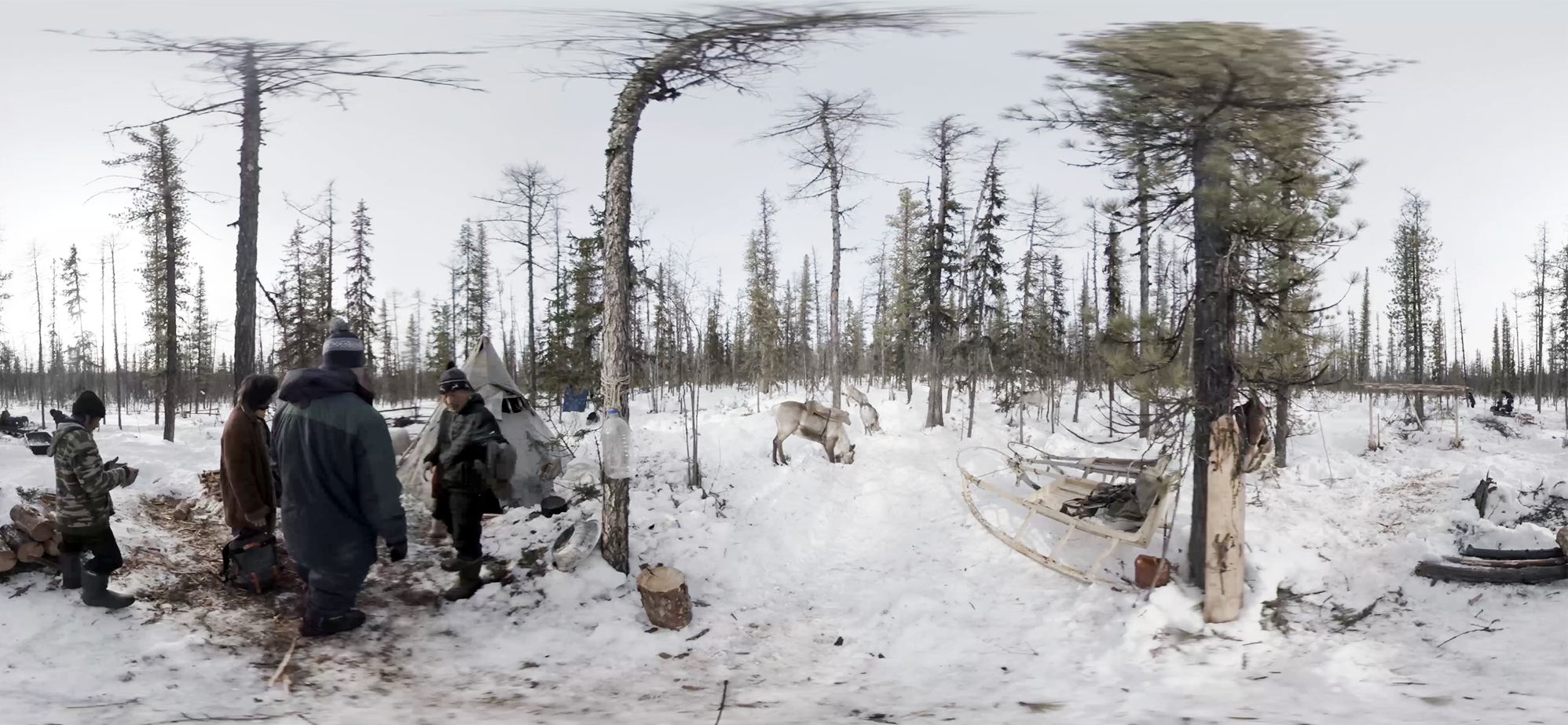
About the Project
The Wandering in Other Worlds: Talking with the Spirits project was initiated in the autumn of 2018 when Anya Gleizer began researching the history of the Maria Czaplicka collection at the Pitt Rivers Museum. Based on this research and a trip to Siberia, Gleizer created “Granny’s Bones”- an artwork comprising of an installation, a diptych-film in VR, a series of altered photographs and an accompanying performance. The work won the inaugural Mansfield Ruddock Art Prize and is now part of the Mansfield College art collection.
In the summer of 2019, Gleizer led another expedition to the Krasnoyarsk region of Siberia during which filming for an interactive Virtual Reality film retracing Czaplicka’s 1914 expedition route was shot. The expedition established a collaboration between the Pitt Rivers Museum, Associate Researcher Dr Jaanika Vider (who wrote a doctoral thesis about Czaplicka's collection), and Evenki scholars, culture-carriers and institutions that has resulted in the redisplay of the material from Czaplicka’s Siberian collection, presenting them through the context of Evenki cosmologies. The Virtual Reality film is being adapted to supplement the new display curated by Alexander Varlamov, Galina Veretnova, and Anya Gleizer.
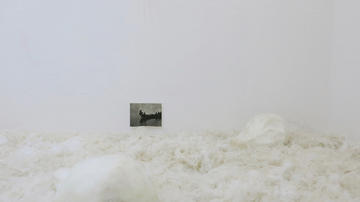
In November 2019 Gleizer gave a performance (Anthropometamorphosis) at Mansfield College where contemporary artist and master of traditional Evenki song, Galina Veretnova appeared live, via WhatsApp and wireless projection. Veretnova sang and spoke to the Oxford audience directly, giving voice to Evenki perspectives, in an exchange facilitated by Irgichit’kan, the performance character developed by Gleizer in Evenkia.
The Pitt Rivers Museum invited Galina Veretnova to see the Siberian collection in person and to develop a performance in response to it, to continue the collaboration. Virtual workshops with museum staff have taken place since as a way of providing access to collections during the Covid-19 pandemic, and in preparation for the redisplay of the collections and the planned residency. Veretnova also participated in the museum’s Late Night event in May 2022, performing via a projected live stream in the lecture theatre and interacting with members of the audience, with Gleizer hosting and translating.
The October 2022 in-person residency included the performance of a reconciliation ritual with museum staff involving Evenki music, dance, and cosmology, led by Veretnova and Gleizer, embracing new ways of working towards healing relationships between the Museum as a holder of Evenki material and the Evenki people. A music soundtrack was specially performed on the viola and recorded by Andrea Fortier for this activity.
The Artists

Galina Veretnova is an Evenki culture carrier (носительница культуры - a special status for Evenki artists and elders who are deemed suitable for transmitting old dances and songs to others by their communities) from Strelka-Chunya in Evenkia. She is a traditional singer and dancer who also leads a contemporary performance practice and works with the Tura museum. She seeks to raise awareness of Evenki language and culture through her art practice.

Trained as a conservation biologist and an artist, Anya Gleizer’s practice is conducted at an interface between art and science. She draws from her research in Alaska and Siberia and art methodologies to explore themes of interior and exterior wilderness through performances and installations that question our assumptions about art and science.
Statement from Galina Veretnova
I am Evenki. The preservation of my culture and heritage as an Evenki person is the central driving purpose of my life and work, my source of happiness, pride, connection and identity.
Being of a minority indigenous people of the Russian Federation, we, the Evenki people, present a unique ethnic group that has managed to preserve an authentic connection to our ancestors, our lands and our traditions, despite many years of endured ethnic cleansing: the richness of our cultural tradition, our language, and our cosmology is a gift whose value is only being realised today. Colonial logics and patterns of thinking have historically dismissed Evenki (and other indigenous) knowledges as inconsequential to a universal understanding of the world. Through this fellowship, I hope to work with the PRM and the University of Oxford to reverse some of these logics, so we can work together going forwards, exploring solutions to our common problems and what a research of the future (one that involves all ethnic minority scholarships) will look like.
For us, the Evenki people, the most important work is that of protecting cultural traditions and practices that embody our stories, cosmologies, and these material and cultural practices in physical form. This is of true value to our culture, not as treasures and items of history but as carriers of Evenki practice into the present. Therefore, a project in which I can introduce my people to audiences who have not encountered our culture before, and tell a truthful story of our perseverance, knowledge and ingenuity in changing times, is an important opportunity not only for me: it is an opportunity for us all, as Evenki, to tell our story that will not be mediated for us to skew our achievements and endurance. In taking this fellowship, I experience less a personal opportunity, than a communal responsibility to use this chance to advance the knowledge of my people. This is very important to us. Projects that aim to preserve and develop native cultural heritage present an important milestone for all of us, for our collective history.
My own work centres on the study of indigenous cultures and how this study affects us on an individual level, what in Russian is referred to as ethnopsychology. For me as a researcher, it is important to encounter the objects that carry the material traditions of our people (some of which are, unfortunately hard to find back at home), and most importantly to share what I know about them – to show that they are alive, and that they give to their viewers the ever-living story of our peoples. I have been empowered by our council of elders as a cultural carrier of Evenki tradition, to study and work with these objects. It is a great joy for us to teach about our traditions, which have such strong effects on human psychology (whether Evenki or not), allowing those who experience them to feel again their connection to the living spirit, the living planet, to feel themselves alive.
